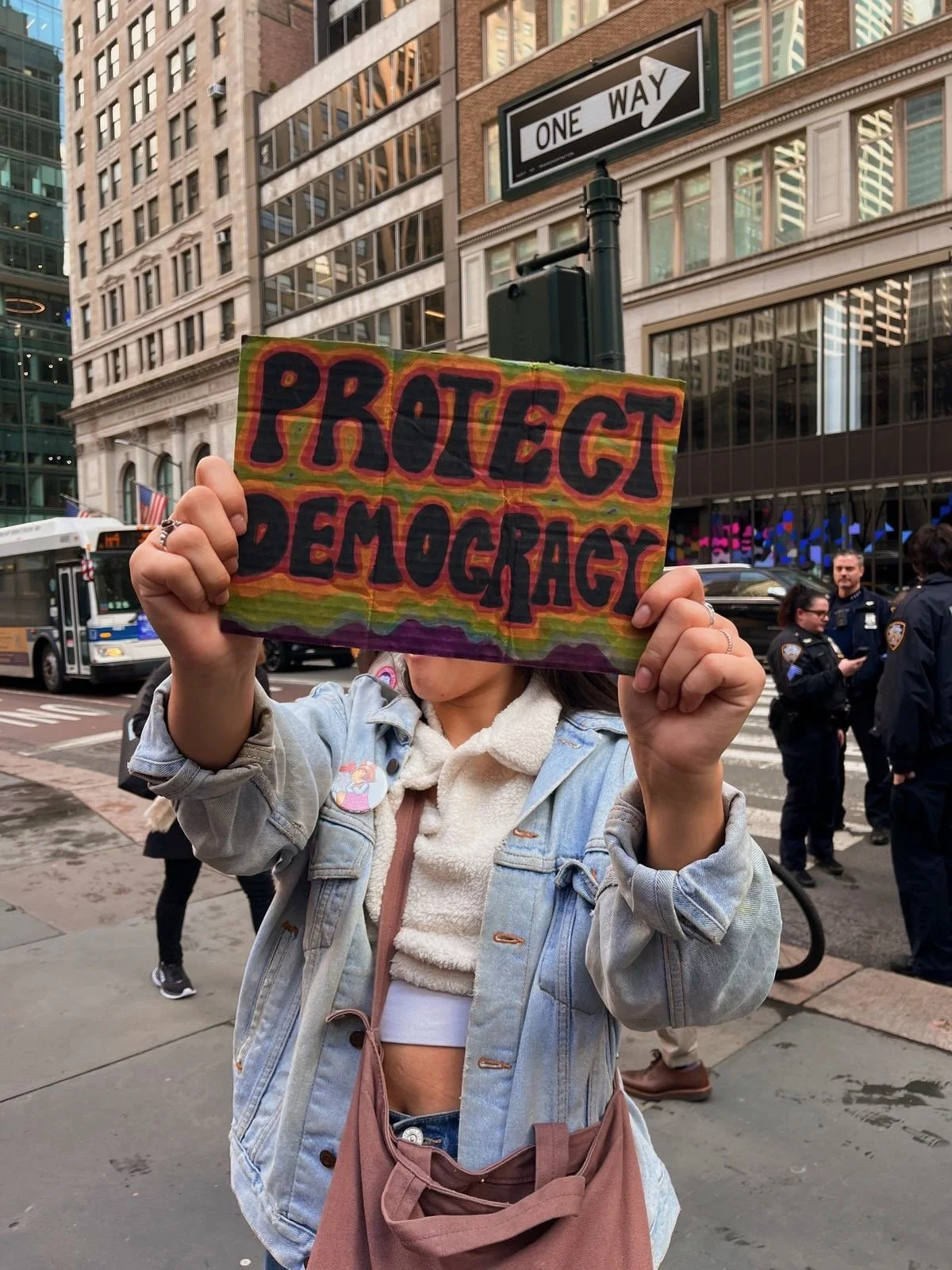Misplaced Activism? Why Marist Students Should Tackle Local Challenges
While protests are flashy and posting on social media is easy, the most impactful change that Marist students can make is focusing on helping the local community.
Beyond protests, local activism can spark wider change in local communities. Photo by Elizabeth Baumgardner '25
It is tempting and comforting to view poverty, hunger and inequality as distant threats in third-world countries — however, they are not
Political protests on college campuses are not a new phenomenon. From marches against the war in Vietnam to opposing South Africa’s Apartheid, students have a history of making their voices heard. Recently, the war in Gaza has sparked a new wave of student-led demonstrations.
From Oct. 7, 2023 to the end of the spring semester of 2024, Crowd Counting Consortium data shows more than 3,700 instances of pro-Palestinian protest activity at over 500 U.S schools. The most common goals among these protests have been calls to end violence in Gaza, Palestinian liberation and for schools to disclose and divest from financial ties to Israel.
Many have labeled these protests as antisemitic, while others have championed them as pro-human rights. While dialogue about the ethics of the protests is worth having, what is more revealing is the hyper-focus on an issue halfway across the globe while ignoring far more pervasive injustices at home — many of which Marist College students could help correct.
Across the U.S., numerous people are in dire need of help. Columbia University, one of the most politically active and heavily scrutinized institutions located on the Upper West Side of Manhattan, has an ongoing homelessness crisis and is only located 20 minutes from the South Bronx, which has a low median household income and high homeless rates.
The University of Houston had set up encampments in support of Palestine. Meanwhile, women in Texas still do not have rights to an abortion due to the Heartbeat Bill.
Students at colleges across Florida held protests and encampments to raise awareness for the war in Gaza. However, the LGBTQIA+ community still faces backlash in the state, even with the progressive motions being made in the state government.
Let's be clear. The struggle in Gaza is horrifying and tragic. No serious person disputes that, but to focus on a complex Middle East conflict, while neighbors are struggling to feed families and find homes is offensive and ignorant of the realities right next door.
It is unclear how exactly student protests will positively or meaningfully affect the situation in Gaza. Posting on social media and regurgitating progressive ideologies at best has minimal effect.
The reality is that the most meaningful, lasting change usually doesn’t come from trendy movements, but from hard and uncomfortable work.
Marist did not see a significant protest last year and is generally not a hub of political activism, nor does it need to be — at least not in the traditional sense — to make a palpable difference. While protests are flashy and posting on social media is easy, the most impactful change that Marist students can make is focusing on helping the local community.
In Poughkeepsie, N.Y., 84% of children attending the local elementary school in the district are economically disadvantaged, and 8% are homeless. According to the not-for-profit organization Farmers Project, one in four households in the City of Poughkeepsie is food insecure by USDA standards, and one in ten households suffers from severe food insecurity.
Marist students have the power to help, and indeed they do. The Department of Spiritual Life and Service helps with fundraising events, such as the Giving Tree, and provides volunteer opportunities at local nursing homes and elementary schools.
There are also numerous ways to help outside of Marist, from Hudson River Housing to Literacy Connections to the Poughkeepsie Farm Project, which all aim to help the local Poughkeepsie community and its residents.
These are hands-on programs designed to assist people in significant ways. The more the Marist community becomes an active part of them, the more we can create a lasting and positive impact on many people’s lives.
